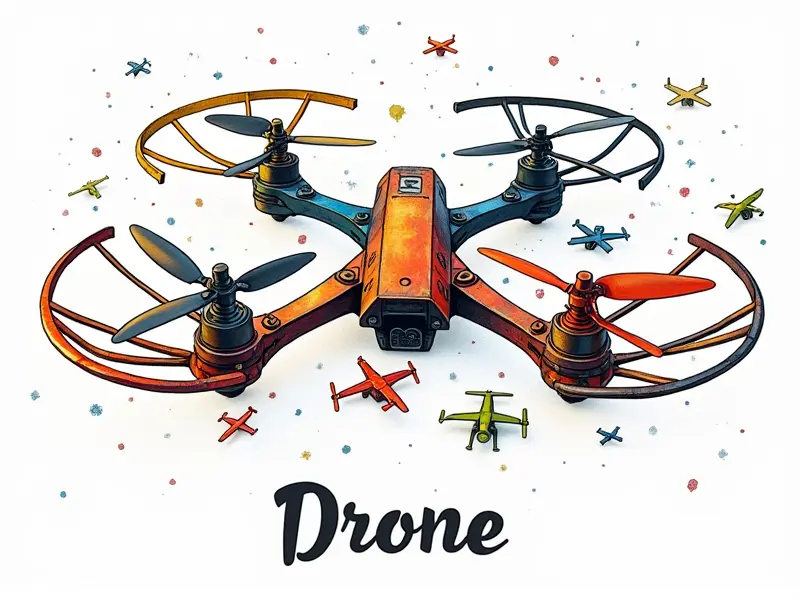Drone crashes frequently

Why Do My Drones Keep Falling Out of Sky?
If you're a drone enthusiast, the frustration of watching your drone crash can be disheartening. Understanding why drones fall from the sky is crucial for improving flight safety and performance. This article delves into common reasons behind frequent crashes and offers practical solutions to enhance your flying experience.
Common Reasons Why Your Drone Keeps Crashing
Drones are complex machines that rely on multiple components working in harmony. Several factors can lead to a drone's sudden descent:
- Battery Issues: A weak or improperly charged battery can cause unexpected power loss.
- Motor Malfunctions: Faulty motors may not provide the necessary lift, leading to crashes.
- Sensor Problems: Inaccurate GPS and compass readings can disorient your drone mid-flight.
- Wind Conditions: Strong winds or gusts can overpower a drone's stability systems.
Simple Fixes for Persistent Drone Crash Issues
Luckily, many common issues have straightforward solutions. Here are some quick fixes to try before your next flight:
- Check Battery Health: Ensure batteries are fully charged and in good condition.
- Maintain Motor Performance: Regularly clean motors and replace faulty parts promptly.
- Calibrate Sensors: Re-calibrate GPS, compass, and other critical sensors before each flight.
Preventing Drone Crashes with Basic Maintenance
A proactive approach to maintenance can significantly reduce the likelihood of crashes. Regularly inspect your drone for wear and tear, and address any issues immediately:
- Clean Propellers: Keep propellers free from debris and properly balanced.
- Inspect Frame Integrity: Look for cracks or damage that could compromise stability.
Tips to Reduce Drone Accidents Immediately
In addition to maintenance, there are several immediate steps you can take to minimize the risk of crashes:
- Use Quality Propellers: Invest in high-quality propellers that offer better performance and durability.
- Monitor Flight Data: Use flight logs to identify patterns and address potential issues early.
Troubleshooting Frequent Drone Crashes: A Guide
Frequent crashes often indicate underlying problems. Here’s a step-by-step guide to troubleshooting:
- Review Flight Logs: Analyze flight data for clues about what went wrong.
- Check Motor RPMs: Ensure all motors are spinning at the correct speed.
Understanding the Top Causes of Drone Accidents
To prevent accidents, it’s essential to understand their root causes. Common factors include:
- Battery Failure: A sudden drop in power can cause a drone to lose control.
- Motor Malfunction: Faulty motors may not provide sufficient lift.
Essential Pre-Flight Checks to Ensure Safe Drone Flying
A thorough pre-flight checklist is crucial for safe operation. Here are some key items to inspect:
- Battery Condition: Check battery voltage and ensure it’s fully charged.
- Motor Functionality: Spin each motor by hand to confirm proper rotation.
Avoiding Drone Failures in Tough Weather Conditions
Flying drones in adverse weather can be risky. Here are some tips for safe operation:
- Monitor Wind Speeds: Avoid flying when wind speeds exceed recommended limits.
- Use Obstacle Detection: Enable obstacle detection features to avoid collisions with objects.
Preventing Drone Collisions with Obstacle Detection
Modern drones come equipped with advanced sensors that can detect obstacles. To prevent crashes, always:
- Enable Collision Avoidance Systems: Use these systems to navigate safely around objects.
- Plan Flight Paths Carefully: Map out routes that avoid potential hazards.
Mastery Drone Stability for Smooth Flights
To achieve smooth, stable flights, focus on the following:
- Balanced Propellers: Ensure all propellers are balanced to maintain stability.
- Proper Weight Distribution: Balance your drone’s payload for optimal performance.
Conclusion
Frequent crashes can be frustrating, but with the right knowledge and maintenance practices, you can significantly reduce their occurrence. By understanding common causes of crashes and implementing preventive measures, you’ll enjoy safer, more enjoyable flights. Remember to always conduct thorough pre-flight checks and stay informed about your drone’s performance data.

